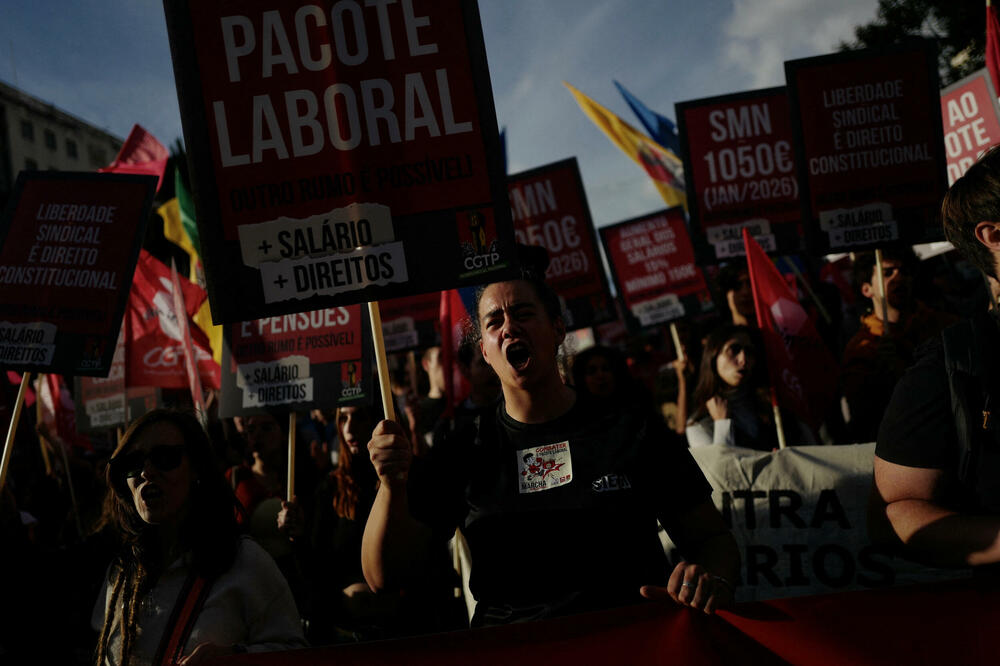Tens of thousands of workers took to the streets of Lisbon, Portugal, to protest proposed labour reforms that critics say threaten workers’ rights and job security.
The centre-right government has proposed changes aimed at increasing job flexibility and productivity, including measures that would make it easier for employers to fire staff, outsource work to other companies, and reduce certain types of compassionate leave. Notably, the reforms would limit bereavement leave for women who suffer miscarriages.
Government officials argue the measures are necessary to boost employment opportunities in one of Western Europe’s poorest nations. However, unions and workers strongly oppose the reforms, warning they represent a significant rollback of labour rights.
Tiago Oliveira, general secretary of Portugal’s largest union, CGTP, called the proposed laws “one of the greatest attacks ever made against workers” in the country. At the protest, he announced a general strike scheduled for 11 December to oppose the reforms.
Protesters demanded better wages, highlighting the country’s low pay levels. Official data indicates that over 50% of Portuguese workers earned less than €1,000 (£879) per month last year, with the minimum wage set at just €870 (£764).
Miriam Alves, 31, a medical device worker, described the reforms as “clearly a step backward in working conditions and could lead to a complete lack of job security.” Archive technician Madalena Pena, 34, criticized the government for introducing changes “in an unfair, subtle, and cunning way, without having said anything before the election” in May.
Estimates of the crowd vary, with the CGTP reporting around 100,000 participants along Lisbon’s main avenue. While the Associated Press also described tens of thousands attending, police figures were not released.
The bill is expected to pass in parliament, backed by the far-right Chega party, but the scale of public opposition signals mounting resistance. Labour unions and workers in Portugal continue to rally against reforms they say undermine hard-won employment protections, demanding both job security and fairer wages.

